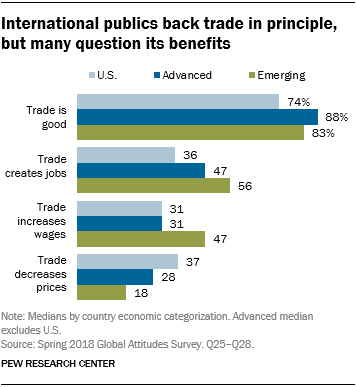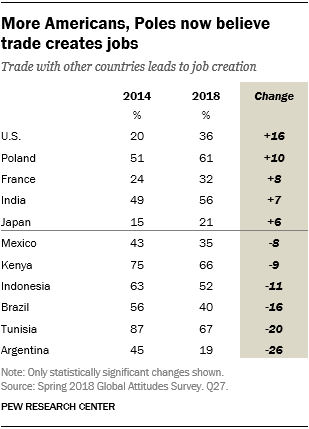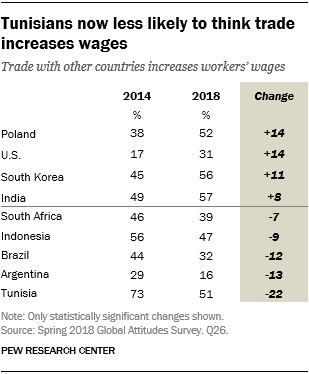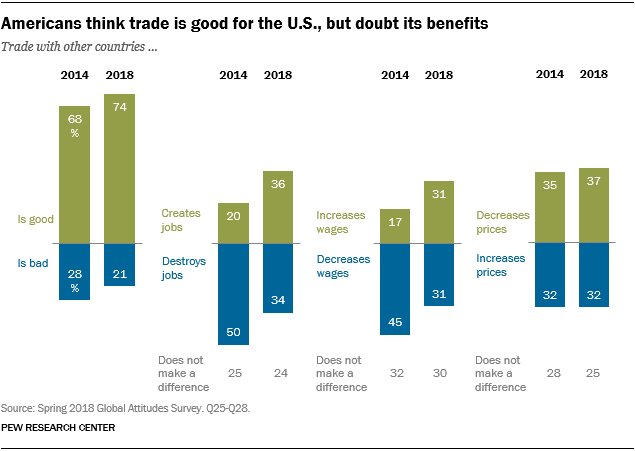For the other North American countries, the import/GDP ratio is 33% for Canada and 40% for Mexico. The only fairly large economy I know with a lower import/GDP ratio than the US is Brazil, where the import/GDP ratio is 12%.
But although imports (and exports, too) are considerably smaller share of the US economy than the vast majority of other countries, the US tends to be more concerned about potential injury from international trade. Bruce Stokes reports the results of a survey done across 27 countries, which account for about two-thirds of the world's GDP, in a Pew Foundation Report, "Americans, Like Manyin Other Advanced Economies, NotConvinced of Trade’sBenefits: Emerging market publics more likely to link trade to more jobs,better wages" (September 26, 2018).
For example, Americans are less likely to feel that "trade is good," and more likely to be concerned about adverse effects on jobs and wages. However, Americans are more likely to believe that trade helps to keep prices low.

However, one of the intriguing results from this survey is that Americans area apparently have much more positive attitudes about how trade affects jobs and wages than they did in 2014. For example, The Pew results suggest that the two countries where attitudes about trade, jobs, and wages have shifted most positively since 2014 are the US and Poland.


Here are the overall shifts in US attitudes toward trade from 2014 to 2018.

When looking at public and political discussions about international trade in the US, it does not seem to reflect a public where three-quarters believe that "trade is good." What's going on here?
1) One issue in this kind of political opinion surveys is that people bring their partisan leanings to the poll. When President Trump was elected, based in part on expressing strong anti-trade sentiments. many individuals who identify as Democrats suddenly rediscovered the virtues of trade. I wrote about this dynamic in a post last year, one shift in "US Polling on Attitudes Toward Trade" (April 12, 2017).
2) There is a pattern across many countries that when an economy is doing well, attitudes toward trade tend to be more positive. At the moment, US economic growth rates and unemployment rates look better than in 2014 (or 2008-9). Again, attitudes on the economic merits of trade tend to be fluid, based on factors not much related to trade.
3) Those who protest against trade tend to be louder than those who support it, and news coverage may reflect this reality.
4) It's perhaps worth noting that most economists don't view trade as having much effect on the total number of jobs in an economy, either positive or negative. With the US unemployment rate at 4.5% or less since March 2017, it would seem peculiar to believe that trade has a strong effect in reducing the total number of jobs. The usual claim of economists is that trade reshuffles jobs, toward the sectors and skills where the US has a comparative advantage and away from others. Trade can reshuffle wages, too, higher in some areas and lower in others. But if you asked me whether trade leads overall to net job creation, taking gains and losses into account, I'd say "no." The case for international trade is that it leads to a reshuffling of economic resources that improves overall output, not that it is a net creator of jobs.